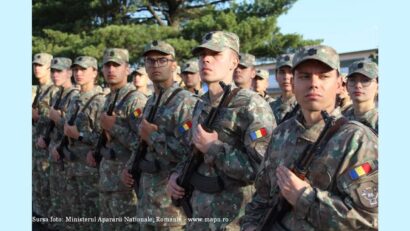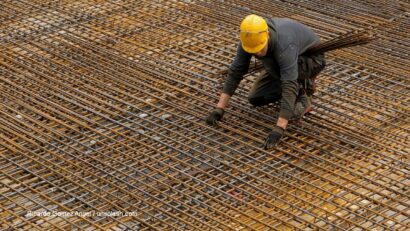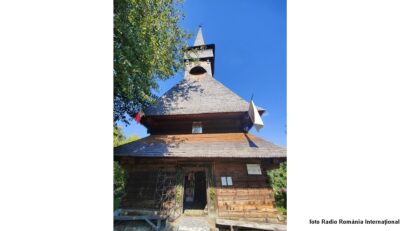Romanian Experience in Refugee Camps
As the inflow of refugees from Syria to Europe grew, Romanian society reacted with debates and polemics.

Christine Leșcu, 24.08.2016, 11:00
As the inflow of refugees from Syria to Europe grew, Romanian
society reacted with debates and polemics. Officially, Romania committed to
taking in 6,200 refugees through the EU relocation program. Socially, the
situation of refugees sparked disputes, but also empathy, mostly for women and
children. In 2013, photo journalist Ioana Moldovan went to the Jordanian camp
for Syrian refugees in Zaatari. Back then, people did not consider moving further,
and had even settled there, in a manner of speaking.
Ioana Moldovan: The Zaatari camp had already become a small town, it had
a street with small shop and taverns, called
mockingly ‘Champs Elysees’. It was surprising to me to see developing a
community of around 120,000 people who, running away from a war, were trying,
one way or another, to make a new life for themselves. Some lived in tents,
others in containers, the kind workers live in on construction sites, made to
look more or less as a home does. I did notice one thing: in Zaatari, people
had some hope to go back home soon, but the refugees on the way to Europe had
none of that hope.
Ioana Moldovan accompanied the refugees on their trip to Europe,
through Greece, Macedonia, Serbia and Croatia, aiming for the promised land
that they believed Germany was, without even knowing how things would turn out
to be there. They just wished for a better life for them and their families, as
Ioana Moldovan told us:
I think I was most impressed by their determination,
courage and staunchness, because you need all this to start on such a road, to
go through this ordeal, to endure sleepless nights, cross the sea in an
inflatable boat. In my experience with them, I don’t think I’ve encountered any
pessimism. I saw fatigue, frustration, but I don’t think I saw pessimism.
In the first wave of migration, mainly men arrived to the shores of
Europe, but now there are mostly women and children arriving, adding to the
tragedy. Ioana Moldovan’s photos have captured their plight:
If in the refugee camps the women, especially mothers,
created for themselves and their families a sort of environment that felt
somewhat like home, where they could manage their lives, on the way to Europe
this becomes almost impossible. For a long while, access to toilets was
impossible, or to proper hygiene. I saw mothers with babies who had to change
diapers on a train or in the open field.
Last year, after seeing what gets posted on social media, Alina
Petcu quit her job with a state company, where she worked as an economist, and
went to Lesbos. The island where she used to spend her vacations had turned
into a refugee camp:
The first few days I went to a camp for vulnerable
individuals, people who had lost relatives during the boat crossing, including
children orphaned for the same reason. Then I went to the north of the island,
to Molyvos, where I joined a volunteer association. I worked a lot in the
harbor there and in a transit camp. This was the first stop for refugees, and
after that they were directed to the capital of the island for registration.
They stayed in Molyvos for only a few hours, unless they spent the night there.
Volunteers worked 24/7, in shifts.
Alina was most impressed by the women in the camp who managed to act
almost normal under those terrible circumstances.
When I got there, I saw these women were just like us.
They came from all social strata, some had no education at all, while others
were professionals, like physicians or pharmacists. A few days before I left, a
woman with a husband and a child gave birth right as she landed in Greece. A
volunteer who had never done that before acted as a midwife. She gave birth
right there, on the stones, surrounded by people, and a physician joined in
eventually. I also met a lot of women who had left by themselves. They had been
students, and they were seeking a better life. They didn’t wear the hijab, they
seemed quite cosmopolitan.
In line with the EU relocation mechanism, Romania has so far taken in 139 refugees. However,
Romania’s effort to integrate asylum seekers is wider, according to Ana Neamtu,
expert with the General Immigration Inspectorate.
Ana Neamtu: In parallel with this mechanism, Romania prepares for an
influx of migrants at its borders, which means setting up camps referred to as
‘integration centers’, managed by the border police. In addition, Romania
continues to have a continuous influx of migrants, which is on a slightly
rising trend. In 2015 we had around 1,200 asylum applications, about the same
as in the previous two years. In 2015, about 500 people applied for one form of
protection or another from the Romanian state. In the last two years, most
asylum seekers who successfully applied for protection were Syrian. Romania has
6 centers for asylum seekers and refugees, housing 1,700, and is preparing to
open more if need be.
The situation of women refugees has the attention of the European
Parliament, which has recently passed a report on the issue of gender in asylum
policies and procedures.






























